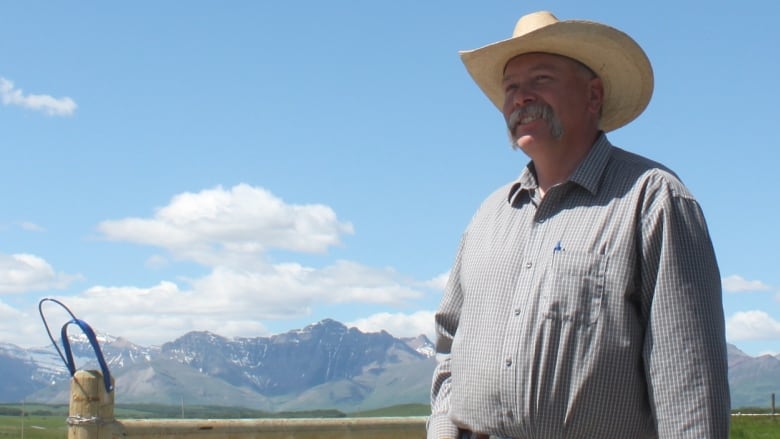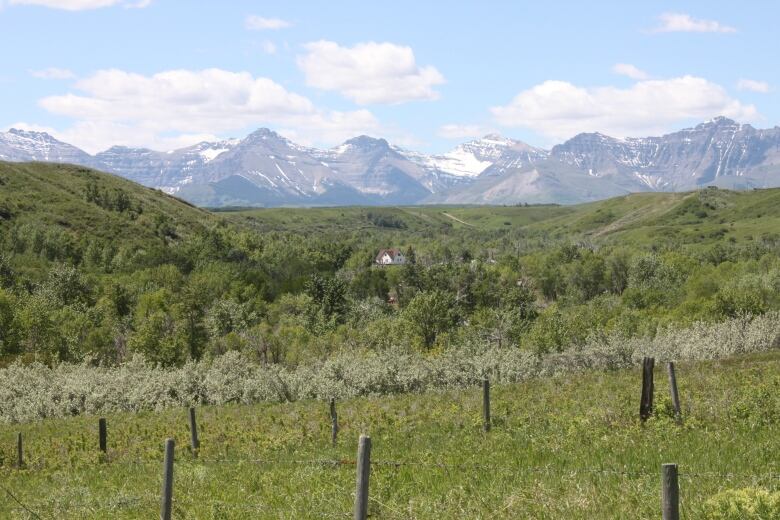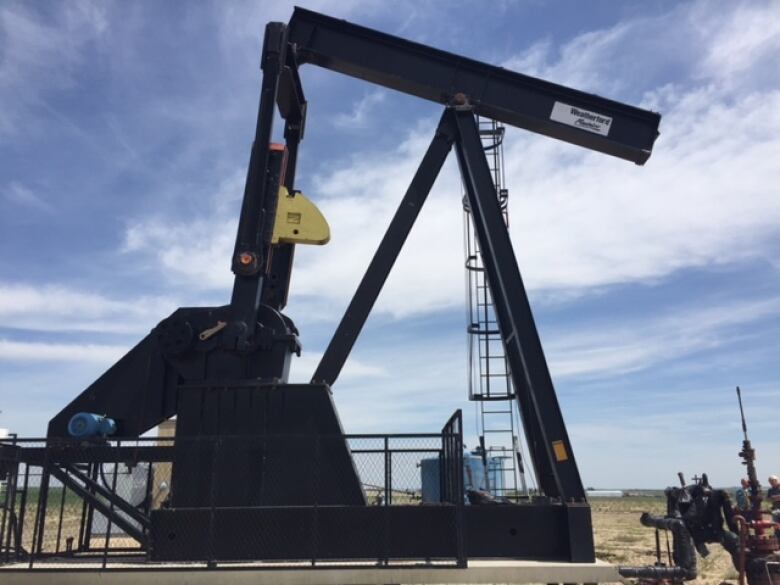Bankrupt energy firms add to Alberta's abandoned well problems
Nearly 150,000 oil wells in the province are inactive or abandoned

Tony Bruder lives in one of the most beautiful parts of Canada, the deep southwestern corner ofAlbertawhere the Prairies bump into the mountains, on a ranch that'sbeen in his family forthree generations.
Those same three generations have lived with an antiquesour gas well that producedfor a few years in the 1950s and has since lain dormant, rusting slowly through the seasons.
Put your mind to what this might mean for the oilsands.Keith Wilson, Wilson Law Office
"My brothers and I used to climb the tree, that's what we called it, and shoot gophers," said Bruder.
That well provides littleamusement now that Bruder owns the ranch and has descended into the bureaucratic nightmare of trying to convince either the Alberta Energy Regulatoror the various companies that have owned the well over the yearstoclean it up.
A decade ago he and other landowners with dud wells on their property invited a half-dozen employees of the Energy Resources Conservation Board (now called the AER) to look at their well sites.
"We actually toured them around the sites," said Bruder. "They guaranteed us that something would happen in the next six months. We never heard back from them."
Bruder's problem could worsen
Twin Butte Energy, the company that owns Bruder's well, is facing insolvency. It has until June 21to find a buyeror its lenders could call in the company's loans. It is actively looking for a buyer.

If, however, Twin Butte becomes insolvent,Bruder is in for a major headache. A recent court decision in Alberta, the Redwater Energy case, ruled that in the case of a bankruptcy, energy companies must use their remaining assets to pay back their lenders before cleaning up old well sites.
- Creditors get priority over environment in Redwater Energy insolvency: judge
- Why the battle over one small oil company's remains is being closely watched
"It effectively neutralizes all the tools that theAlberta Energy Regulator and the province havedeveloped over the past 25 years to ensure a super priority for environmental cleanup," said Keith Wilson, a lawyer for landowners in Alberta.
"The Redwater decision occurs in a context where we've seen a dramatic increase in the number of non-producing wells with no real potential for production."
Bruder'swellproblem is repeated nearly150,000 times over in Alberta.As of early June, theprovince has 69,153 abandoned wells, which means they have been plugged, but not reclaimed, and a further 79,102 wells that have been inactive for more than a year.

Albertanscan't force acleanup
North of Bruder, in Three Hills, Alta., Dave Smithersis dealing with a wellleft over by a company in bankruptcy. A pumpjack sits on his farmland,partially disassembled. The well is 1,500 metres deep, and then spreads horizontally a similar distance.
"The communication with the company over the past two years has been zero," said Smithers.
Alberta landowners like Smithers have no power to say no to an oil or gas well on their property. Nor do they have the power to compel a cleanup.
"Since theland I own is on top of oil and other mineral rights that someone else owned, I could not say no tothem to get through my land to get to their asset underground," said Smithers.
"Therefore Iwas always of the understanding that if they ceased to want to be there, they would clean my land up to the way it was when they found it."
That has not happened. Because of where it is placed on the land,the well spends part of the year in themidst of a pond. The topsoil around the site was never replaced, so the well site is surrounded by clay that runs intothe surrounding farmland when it rains.
Smithers said that farmers and energy companies have a history of working well together,but he senses it is starting to shift.
"But now I see a trend where that relationship is breaking down and giving way to what I see as thestrong man wins."
The 'strong man' wins
One of the interesting twists of the Redwater Energy rulingwas thatATB Financialbrought the case forward with GrantThornton, the bankruptcy trustee in charge of selling Redwater's asset. ATB is owned by the province of Alberta.On the other side of the case, was the Alberta Energy Regulator. At its heart, this case was about two arms of government fighting each other.
- Politicians and industry disappointed no federal funding for orphaned oil wells
- Energy sector's woes could put taxpayers on hook for cleanups
Dave Mowat, the chief executive of ATB, said that the Redwater case was launched for clarity, so that lenders would know if they have appropriate security in place before making loans. But he saidhe also sees the other side of the story.
"I think there's an issue with abandoned wells in Alberta, period, said Mowat. "It's important to me as a citizenof Alberta. I want something that works going forward. I could potentially see some sort of negotiationto come up with something that works for the province and works for the companies and their banker."
However, this case is expected to set a precedent with bankruptcies where the lender is notowned by the province. For that reason, the AER is appealing the decision.
Think of the oilsands
Right now, wells of bankrupt companies end up in the Orphan Well Association, which is funded mostly by industry andhas seen its inventory of wells quadruple in the past two years. It has 768 on the list now to be abandoned and 755 to be reclaimed. It reclaimed roughly 100 last year.
With the Redwater decision, the association is set to be overwhelmed, said Barry Robinson, a lawyer with Ecojustice.
He thinks companies should pay a cash deposit up front
'The orphan well program isn't going to be able to afford this," said Robinson." I think the decision just clarifies the problem, the regulator is not holding enough security for most of these abandoned wells. Deposits and timelines are the answer."
Wilson thinks that a change in the federal bankruptcy law is in order to fix the problem, so that environmental cleanup is made a priority.
"Put your mind to what this could mean for the oilsands."
As of 2015, the provincial government held $1.6 billion in reclamation bonds to clean up the oilsands that's against $21 billion in estimated clean-up costs. Alberta's auditor general raised concerns last summer that the province wasn't holding enough on deposit.












_(720p).jpg)


 OFFICIAL HD MUSIC VIDEO.jpg)
.jpg)



























































































